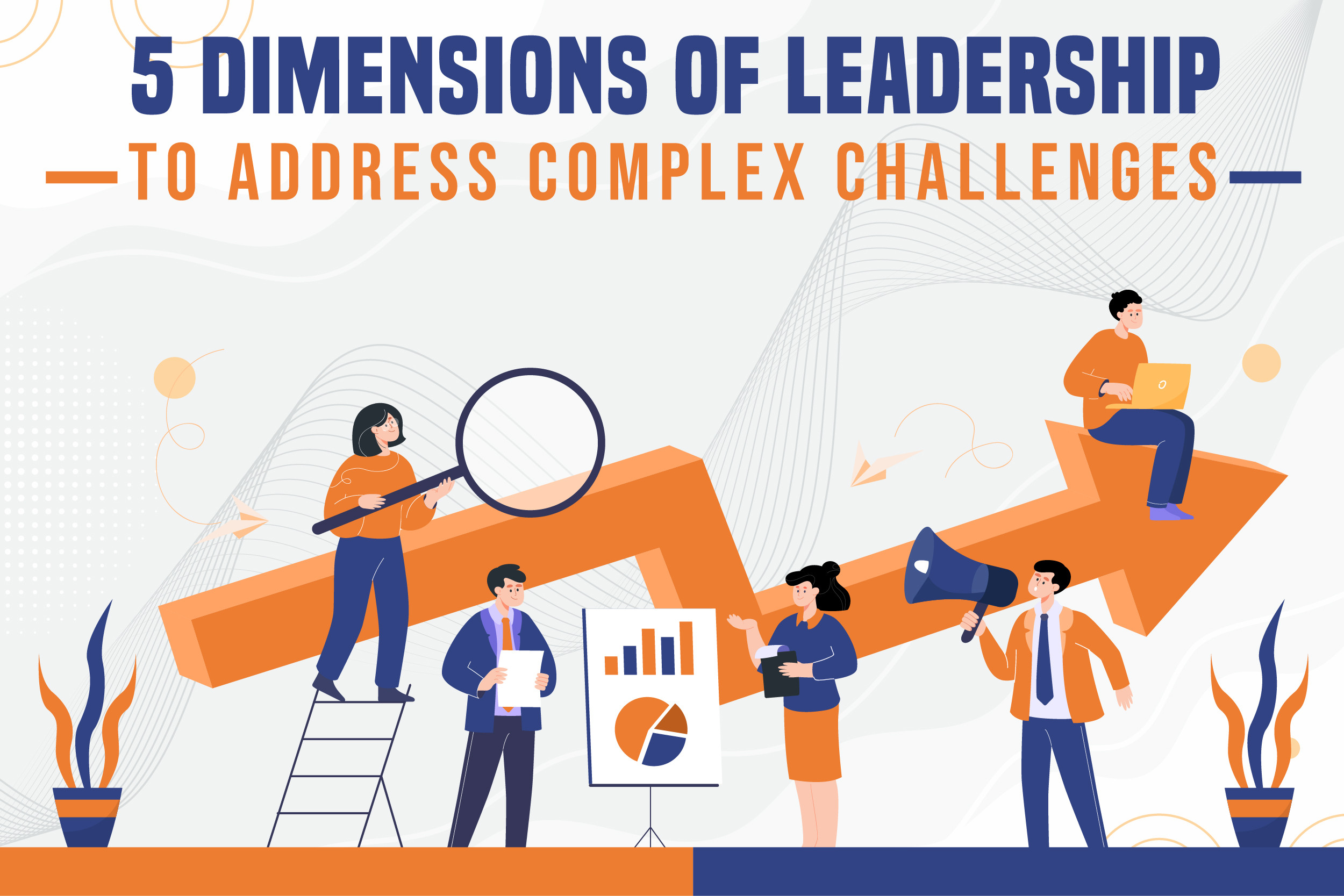
5 Dimensions Of Leadership To Address Complex Challenges
In today's highly volatile and complex world, effective leadership is more important than ever. Leaders are expected to navigate through uncertainty, adapt to changing circumstances, and address a multitude of challenges that are often unpredictable and interconnected. To be successful in this environment, leaders need to possess a wide range of skills and competencies that go beyond traditional notions of leadership. In this article, we will explore five dimensions of leadership that are essential for addressing complex challenges in today's world.
The 5 Vital Dimensions Of Leadership Required To Address Complex Challenges
When Leadership and Management are robust and powerful, the team becomes resilient and productive too. This is why it is of paramount importance that a team or a workforce has the right guidance beside them. This ensures that a team’s hard work meets the target. Let’s dive deeper to know more about the 5 vital dimensions of leadership.
1. Strategic Thinking: The Foundation of Effective Leadership in Complex Environments
The first dimension of leadership in addressing complex challenges is the ability to think and act strategically. This means having a long-term vision for the future and the ability to develop and implement plans that support that vision. Strategic thinking involves analyzing data, understanding trends and patterns, and making informed decisions that consider the potential risks and benefits of various options.
It also involves anticipating and preparing for future challenges and opportunities, rather than simply reacting to current ones. A strategic leader is able to communicate their vision and plan effectively to their team and can inspire and motivate them to work towards a common goal. By thinking and acting strategically, leaders are able to navigate through uncertainty and create a path toward success in the face of complex challenges.
2. Building Strong Relationships: The Key to Effective Collaboration and Influence
The second dimension is the ability to build and maintain strong relationships. Effective leaders understand that success often depends on the ability to collaborate with others and influence stakeholders, both inside and outside the organization. Building strong relationships requires active listening, empathy, and the ability to communicate clearly and effectively. It also involves building trust and demonstrating integrity, so that others are more likely to be open to new ideas and approaches.
A leader who can build strong relationships is able to leverage the knowledge and resources of others to achieve common goals and is more likely to be seen as a credible and trustworthy partner. In complex environments, where there are often multiple stakeholders with competing interests, the ability to build and maintain strong relationships is essential for achieving success.
3. Cultivating Adaptability: The Ability to Embrace Change and Innovate
The third one is the ability to cultivate adaptability. In the present-day dynamic environment, leaders must be able to embrace change and adapt to new circumstances. This involves a willingness to experiment and take calculated risks, as well as the ability to learn from failure and adjust course when necessary. Effective leaders are also able to foster a culture of innovation and continuous improvement, encouraging their teams to identify new opportunities and think creatively.
Cultivating adaptability allows leaders to stay ahead of the curve and navigate through uncertainty with confidence. It also allows them to be more agile and responsive to changing circumstances, and to identify and capitalize on new opportunities as they arise. In complex environments, where the only constant changes, the ability to cultivate adaptability is essential for success.
4. Developing Resilience: The Ability to Bounce Back from Setbacks
Now comes the ability to develop resilience. Resilience is the capacity to recover quickly from setbacks, adapt to change, and continue to move forward in the face of adversity. It involves maintaining a positive mindset, staying focused on goals, and having the ability to manage stress and uncertainty. Resilient leaders are able to remain calm and composed under pressure and to inspire and motivate their teams to do the same.
They are also able to maintain a sense of perspective, recognizing that setbacks are an inevitable part of the journey toward success. Developing resilience allows leaders to overcome obstacles, learn from setbacks, and continue to make progress toward their goals, even in the face of significant challenges. In complex environments, where there are often unexpected obstacles and setbacks, the ability to develop resilience is essential for achieving success.
5. Leading with Emotional Intelligence: The Ability to Connect and Empower Others
The fifth and final dimension of leadership in addressing complex challenges is the ability to lead with emotional intelligence. The capability to manage and understand the emotions of an individual’s own self as well as others is called emotional intelligence. Successful leaders having appropriate Leadership Development has the ability to build a connection with others on a personal level and empathize or relate with their experiences and perspectives.
Leading with emotional intelligence allows leaders to build strong, cohesive teams, and create a positive work culture that values collaboration and creativity. It also allows them to inspire and motivate their teams to achieve their goals, and to create a sense of purpose and meaning in their work. In complex environments, where there is often a high level of stress and uncertainty, the ability to lead with emotional intelligence is essential for building a resilient and high-performing team.
Wrapping Up
Effective Leadership and Management in complex environments require a multifaceted approach that encompasses several key dimensions. Leaders must be able to think strategically, build strong relationships, cultivate adaptability, develop resilience, and lead with emotional intelligence. By developing these key competencies, leaders can navigate through uncertainty and achieve success even in the face of significant challenges. As Warren Bennis, pioneer of the contemporary field of Leadership studies, aptly put it, leadership is about translating vision into reality, and by mastering these five dimensions of leadership, leaders can inspire and empower their teams to bring that vision to life.
